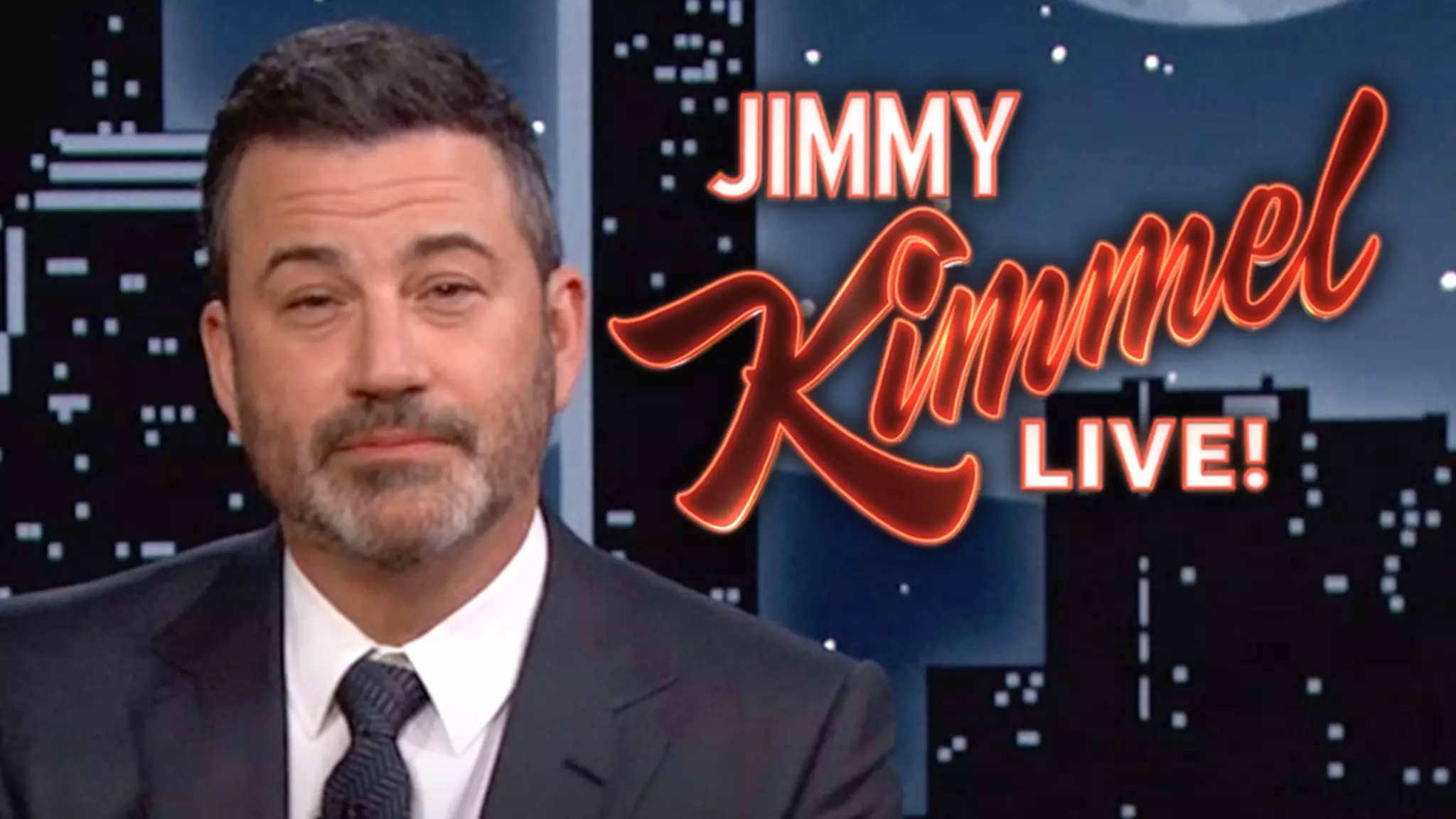In recent days, the controversy surrounding ABC’s suspension of “Jimmy Kimmel Live!” has ignited a fierce debate about the fundamentals of free speech in the United States. The decision to halt a popular late-night show over comments that are perceived as controversial or critical is emblematic of a broader ideological struggle. While corporate interests often shape public discourse, it is undeniable that such suppression undermines the very essence of democracy: the free exchange of ideas. When a major network silences a comedian for fear of offending certain political figures or groups, it signals a disturbing shift towards censorship and conformity.
The staunch support from Hollywood elite underscores a collective resistance to this move. Actors, comedians, and writers see the suspension not merely as a punitive measure but as an attack on civil liberties. Their voices echo the fundamental belief that in a free society, disagreement and controversy are not threats but vital components of progress. If we allow corporate and political pressures to silence outspoken commentary, we risk eroding the bedrock of American democracy—its commitment to open discussion and dissent.
Market Power and Political Pressure: A Dangerous Alliance
This incident reveals the powerful interplay between corporate entities, political influence, and media control. ABC’s decision appears rooted in fear of backlash or political repercussions from powerful entities aligned with figures like Donald Trump. The fact that the Federal Communications Commission (FCC) and media conglomerates like Nexstar Media Group are implicated reflects an alarming trend: financial and political interests increasingly shape public narratives and suppress dissenting voices.
This is not just about a comedian’s comments; it is about the broader implications for free expression in an era where media giants possess enormous influence over what is permissible. Censorship under the guise of maintaining civility or avoiding controversy is, in reality, a Orwellian tool used to reinforce the status quo. The silence imposed on Kimmel’s show sends a chilling message to anyone daring to challenge dominant narratives or question authority. This alliance between corporate interests and political power threatens to turn America into a society where only approved messages are broadcast, throttling civil discourse and public accountability.
The Cultural Resistance and the Fight for Democratic Principles
Despite the corporate and political pressures, a wave of public and celebrity protests signifies a resilient commitment to the core values of free speech. Prominent figures like Ben Stiller, Rosie O’Donnell, Wanda Sykes, and many others publicly denounced the suspension, framing it as an assault on civil liberties. Their condemnations serve as a reminder that artistic and journalistic freedom are essential to holding power accountable and fostering social progress.
The support from organizations like the Writers Guild of America and SAG-AFTRA further strengthens the argument that America’s entertainment industries recognize their role as champions of free expression. These groups emphasize that the right to voice dissent, even when unpopular, is intrinsic to a healthy democracy. Their statements condemn suppression and retaliation, highlighting how the current climate fosters intimidation rather than debate. The protests—ranging from public demonstrations to posters equating political figures with fascism—highlight an urgent necessity for vigilance in defending these rights.
The Political and Media Climate: A Fight for the Soul of Democracy
The reaction from political figures and social media, especially from Donald Trump, illustrates a deepening divide. Trump’s overt approval of the suspension exemplifies how misinformation and partisan allegiance threaten to distort the principles of free speech. When leaders endorse suppression rather than defend open dialogue, they weaken the democratic fabric and normalize censorship.
Jimmy Kimmel’s silence following the suspension reflects the broader climate of intimidation faced by those who dare to criticize or satirize powerful figures. Meanwhile, Trump’s vocal support reinforces a narrative of authoritarianism cloaked in political bravado. Under these conditions, the preservation of free speech hinges on public resilience and active resistance. It is a test of whether Americans will uphold the right to dissent or succumb to forces seeking to silence opposition in the name of political expediency.
This crisis is not merely about offensive comments or controversial opinions; it is about the survival of a society where ideas, no matter how uncomfortable, are protected. As history demonstrates, societies that embrace censorship or suppression often regress into authoritarianism. The fight for “Jimmy Kimmel Live!” is ultimately a fight for the soul of democracy—an ongoing struggle against rising tides of conformity and control.

